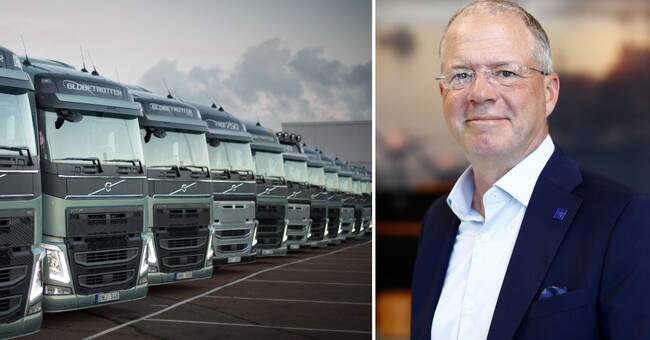Reading from Volvo today feels more like a fairy tale book with a happy ending than a financial statement.
The factories that were stopped and emptied this spring, molokna workers who received TV visits at home and told that it probably felt a little nice to be at home and get paid, but mostly insecure.
The Minister of Finance who rushed to the rescue with billions in support to save Volvo jobs.
The share dividend that was canceled.
All of this has, as if by magic, been transformed into factories that go for high pressure, more people who get jobs, money that flows in and order books that overflow.
And now it will be a shareholders' party: SEK 30 billion in dividends.
Volvo's proposed dividend - Swedish record
Volvo's proposed dividend is a Swedish record through the ages.
But the same kind of reality, though not as fabulously good, prevails in many of the Swedish stock market giants.
They have recovered improbably fast from the spring corona crisis.
Half of the most traded companies canceled their share dividends this spring.
Some already decided in the autumn to call an extraordinary general meeting and, after all, distribute money to the shareholders, even if it could mean that they had to pay back, or did not get the right to redundancy support.
The rules state that a company must stop receiving redundancy support for at least six months before distributing money to shareholders.
They were introduced in the spring after SVT's review showed that several stock market giants received layoff support from taxpayers at the same time as they distributed money to shareholders.
Does not think he needs redundancy support
But in the financial statements, most of the danger blows over.
They are proposing billion dividends to shareholders, and obviously do not think they will need more layoffs.
Exceptions among those who have presented their financial statements are H&M and SSAB.
Many of the export companies have seen profits fall, but the vast majority are doing better and better.
They testify that there is good momentum in most markets and they shine in their powerpoint presentations with their "flexibility" - that is, successful cost savings.
Last summer, the companies totally surprised the stock market with these cost savings - those who counted had not expected that the state would actually take the companies' downsizing costs, so that it was seen in the form of better profits.
Even more important for global companies is probably the liquidity support from the central banks, which has kept the world economy afloat overall.
Can increase quickly thanks to redundancy before notice
"The stock market has become contribution-dependent," I wrote then, which yielded some outrage.
Now the listed companies seem to have detached themselves from the immediate dependency on grants, and are reaping the benefits of being able to get started and increase the pace quickly thanks to the fact that they laid off instead of giving notice.
The fact that they also received a grant for it makes it even better.
Volvo received the most layoff support of all: It was SEK 1.3 billion from the Swedish state alone.
Those laid off from the factories did not get laid off, but Volvo has still reduced its workforce by more than 7,000 people.
Demand is now 61 percent higher than just before the corona crisis.
And in Volvo's case, it's not just thanks to finance ministers and central bank governors.
All of us corona bored also help at home at the computer.
Namely, more trucks are needed to transport around the increased consumption of goods according to Volvo's financial statements.

